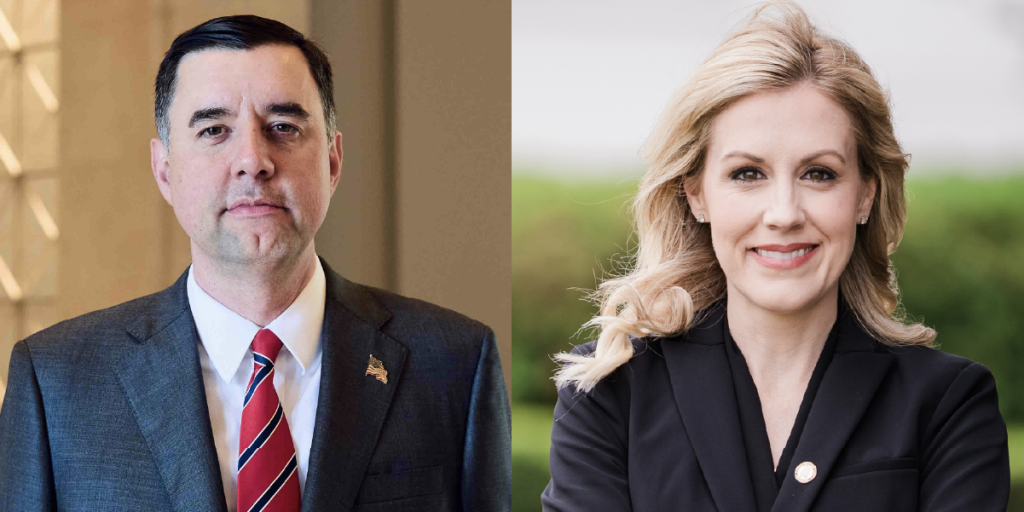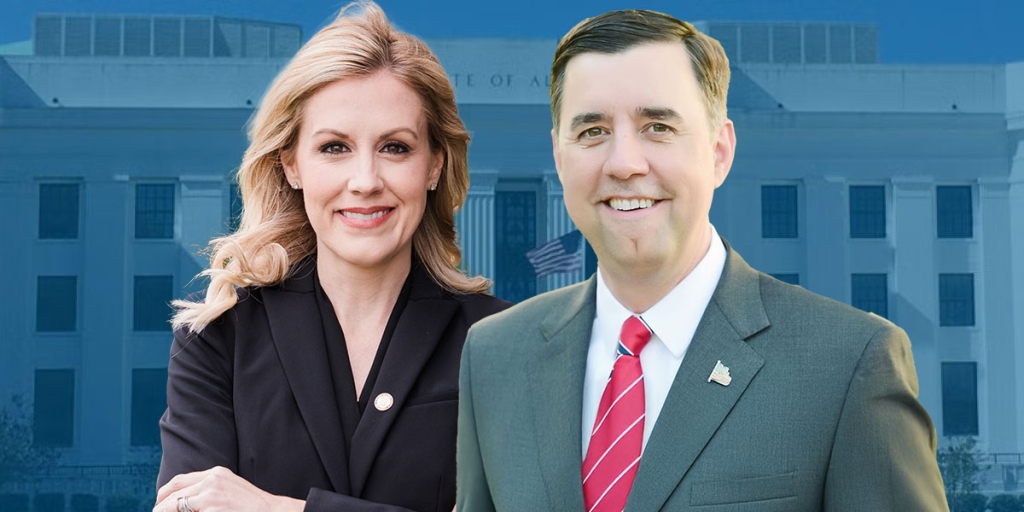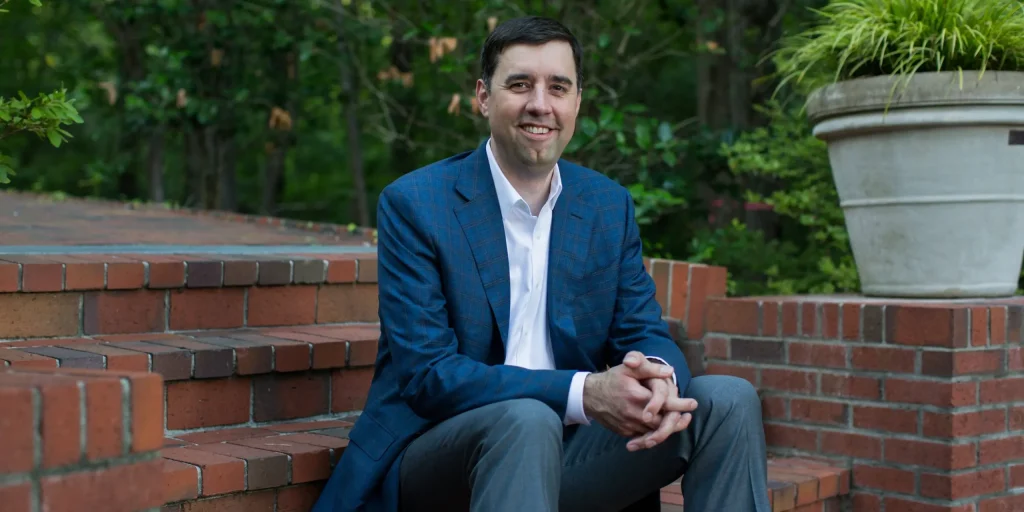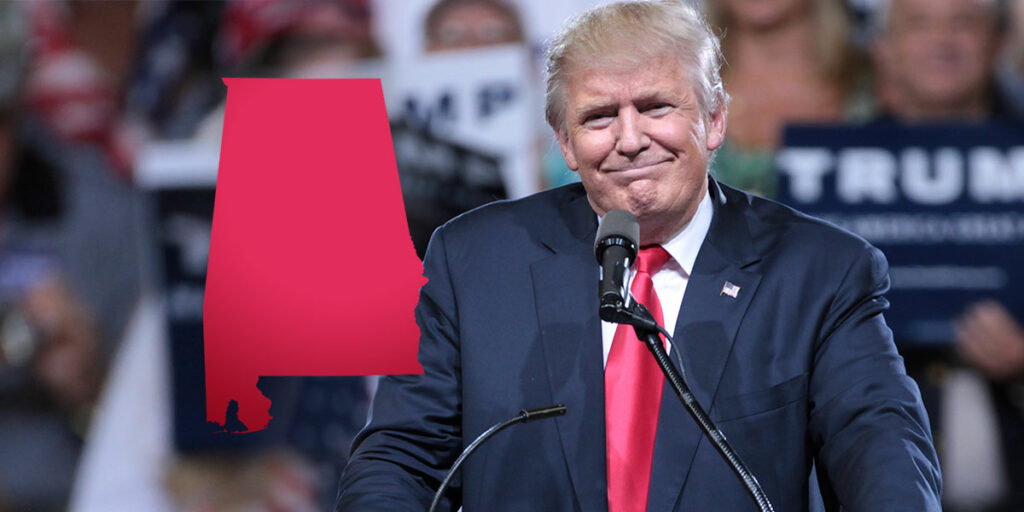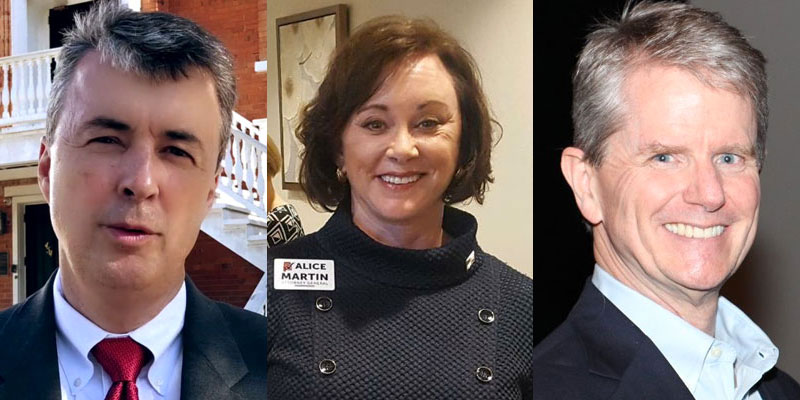Democrat candidate for attorney general Chris Christie recently responded to the questionnaire prepared by the Alabama Policy Institute and Yellowhammer News. His answers are below.
ACTING PHILOSOPHY
Interpreting the Law
Attorneys general are in the business of interpreting and enforcing the law. If elected, would you see your role as Attorney General (AG) as that of an activist, with freedom to interpret the law to new situations, events, and presidential administrations, or as that of a constructionist, interpreting the law strictly through the lens of original intent?
My role as AG would be based on my philosophy that courts should interpret law as originally intended and should avoid activist result-oriented decisions that are inconsistent with what those drafting the law would have intended. For example, in Citizens United, the United States Supreme Court essentially found that a public corporation has religious rights under the United States Constitution, even though a corporation is only a separate fictitious legal person without a spirit or soul. When drafting the United States Constitution, no one would have intended the activist interpretation in Citizens United.
On the other hand, to enforce laws, the rule of law requires courts to interpret laws. Since the founding of our nation, every state (other than Louisiana), has had common law. Consistent with the United States Constitution and original intent, and especially with common law systems, American courts interpret laws, and should interpret laws, to apply them to unforeseen situations or events.
Enforcing the Law
Are you willing to aggressively defend state statutes and policies, even if you disagree with them?
As Attorney General, I would defend state statutes even if I disagree with them, so long as they were not unconstitutional. First, the United States Constitution, including the Bill of Rights, is the supreme law of the land. Then, the Constitution of Alabama’s provisions are over state statutes. As the lawyer for the people of Alabama, my responsibility as Attorney General will include protecting individuals’ constitutional rights. Moreover, as Alabama Attorney General, I will work with the legislature to avoid creating new unconstitutional laws.
Balancing Roles
How do you plan to balance your role as chief law enforcement officer in the state with your role as chief legal representative of the state?
The AG’s role as chief law enforcement officer and as chief legal representative should not and will not normally conflict. If a clear conflict between enforcing law applicable in Alabama and representing the State of Alabama were to arise, the law applicable in Alabama is to be enforced so we have the rule of law. If an arguable conflict arose between enforcing law applicable in Alabama and representing the State of Alabama, how to handle that hypothetical would probably depend on facts and circumstances for that particular situation. Overall, the AG’s role should be working with the legislature so that these types of problems are avoided.
MANAGEMENT
Budget and Staff
The AG oversees a staff of more than 160 and a budget of over $10 million. What has prepared you to lead such a large organization and to be a responsible steward of taxpayer dollars?
More than any other Attorney General candidate, my work experience has prepared me to handle the staff and budget of the Alabama Attorney General’s Office. First, with my former law firm, I supervised more lawyers than the number of lawyers with the Attorney General’s Office. During my 30 years there, I was part of growing the firm to be, in the State of Alabama, one of the most successful law firms, if not the most successful, and one of the most successful private businesses of any type. We grew from about 80 lawyers to over 550 lawyers, with recent annual budgets of over $200 million. Second, as a Peace Corps Volunteer, from June to August during the University of Yaoundé’s break, I set up, ran, and closed a government training facility that housed and fed over 100 new Peace Corps Volunteers and over 100 teachers and staff. In that role, I successfully supervised staff, handled the paperwork, and worked within a tight government budget. Through this experience, I understand that government spending and budgeting is different than for a private business, but also know my success in a great private law firm makes me the AG candidate best prepared to manage the AG’s staff and budgets.
Prosecutorial Discretion
Given limited resources, the AG must use discretion in deciding which crimes to prosecute. What is your overall position on the extent of prosecutorial discretion? Should prosecutorial discretion ever be used to avoid prosecuting an alleged corrupt government official? Do you think a prosecutor ever has the right to not prosecute a broad range of accused people/crimes?
When I am AG, government corruption (along with public safety) will be a top priority. In my Attorney General’s Office, we will have the resources to prosecute corrupt government officials and we will aggressively prosecute government corruption.
When considering all of the AG’s responsibilities, given limited resources, enforcing the laws of Alabama requires using discretion in making many decisions. For example, past Alabama Attorneys General have used discretion to intrude into lawsuits filed in other states. As an outsider, those Alabama AG efforts in other states more likely hurt the party supposedly being helped, as well as waste scarce Alabama resources that need to be used to enforce and improve Alabama laws. Another example, in April 2018, the news media reported that a prosecutor exercised discretion to prosecute as an adult a 15-year-old child, who had not hurt anyone and did not have a gun during a burglary. The Court convicted the child of felony murder and sentenced him to 65 years in prison. If that 15-year-old child had been from an affluent suburb, it is hard to imagine the prosecutor would have used his discretion in the same manner.
At times, prosecutorial discretion should be exercised, and cases not pursued. For example, if a government corruption case after a thorough investigation appears unlikely to be won at trial, it probably should not be pursued further. Another example, a prosecutor should not use too many resources to prosecute people for jay-walking across empty streets or for traveling five miles per hour on the interstate over the speed limit. So, one does not prosecute all crimes, as a practical matter, but should focus on those prosecutions that will help move Alabama forward.
ETHICS
Code of Ethics
Both the current and the preceding AGs proposed comprehensive reforms to Alabama’s ethics laws. The Legislature recently established a Code of Ethics Clarification and Reform Commission “to reform and clarify the Code of Ethics”. The AG will co-chair this Commission with the Ethics Commission Director. Would you recommend amendments or revisions to the ethics code? If so, what are your suggestions in doing so?
The Alabama ethics laws need to be clear and then explained well, with a focus on compliance. The AG should take the lead on these issues, working with the Ethics Commission and the legislature. Most people want to comply with the ethics laws, either wanting to do right or to avoid penalties or both.
The Alabama legislature considered ethics reforms in 2018 that were generally improvements, but additional amendments are needed. A huge gap is dealing adequately with Alabama’s “dark money” problem. Dark money led to Governor Bentley’s acting chief of staff’s being paid, indirectly from secret sources, more than twice what the Governor was paid. That should be against the law. Another gap is the issues underlying 2018 HB 317, which I address further in response to another question below. As the Attorney General, I will make pushing these ethics law reforms a top priority.
In the Office of Attorney General
While the Alabama Attorney General’s office is one of the state’s largest legal offices, it has been a common practice for AGs to outsource lucrative legal work to politically connected law firms. The firms often then contribute large sums to the AG’s campaigns for reelection or higher office. Is this an example of the AG using the powers of the office for personal benefit? If so, how will you make changes to this practice?
An AG’s outsourcing legal work to law firms based on political connections is wrong. The AG should not personally benefit from outsourcing legal work and should not allow the appearance or perception of his personally benefitting. But common sense and experience teach that the AG should at times outsource legal work. A hospital would not have a general surgeon perform invasive heart surgery just because the general surgeon is already on the medical staff. Similarly, certain rare legal matters require experience and expertise not in the Attorney General’s Office. For example, if hiring for the state of Alabama outside lawyers with needed experience and expertise would most likely lead to more additional recovery than the additional legal fees, then the AG should hire the best firm for the matter. And some legal matters require so much of the Attorney General’s Office’s resources that not outsourcing the legal work could limit the Office’s ability to pursue top priorities, such as prosecuting government corruption and promoting public safety. For the rare legal matters best handled by outside counsel, an AG should negotiate with a number of law firms, who have the experience and expertise, to secure the best representation and lowest costs to the state, thereby choosing the best result for the people of Alabama.
Ethics and Economic Development
Alabama House Bill 317 exempts certain economic developers from being required to register as lobbyists and drew heated discussion across the state this past legislative session. Is this exemption, in your opinion, as innocuous as proponents claim or likely to lead to abuse as opponents suggest?
House Bill 317 is not as innocuous as proponents claim and is not as likely to lead to abuse as opponents suggest. Foremost, the new law poses problems. Supporters of HB 317 apparently recognized the new law was imperfect, because it sunsets (goes away) twelve months after it became law. The alternative proposed by the Ethics Commission seemed better and another even better alternative likely can be developed to address the concern of losing economic development opportunities.
Based on House Bill 317, unchecked corruption and abuse is not as likely as some have suggested. Tools to handle corruption related to economic development are still available even with the new law. Under section 5 and section 7 of the current ethics law, corruption related to economic development can still be prosecuted. Addressing these issues should be part of amending the ethics laws, which should be a top priority of a new Attorney General in 2019.
INDIVIDUAL RIGHTS
Campus Free Speech
U.S. Attorney General Jeff Sessions recently said there is “too much suppression of free and open speech on college campuses today.” Do you believe this is an issue in Alabama and, if so, how should the AG respond?
The First Amendment rights of expression and assembly are among the most important parts of our United States Constitution, for unpopular speech as well as any other speech. Those rights must be protected. In Alabama, suppression of free speech and open speech on college campuses does not appear to be an issue that warrants the involvement of the Attorney General.
Religious Liberty
Do you think that individuals and small business owners should be forced to participate in activities that violate their religious beliefs in order to comply with anti-discrimination laws?
To me personally, religious liberty is one of the most important rights secured by the United States Constitution and its Bill of Rights. Other important federal rights include not being discriminated against based on one’s race or religion. For example, can a restaurant owner in the United States, who objects to serving persons of another race or another religion, claim a religious basis to discriminate based on race or religion. No, such discrimination violates federal laws that apply in Alabama based on our United States Constitution. Alabama generally does not have additional anti-discrimination laws. Therefore, for an Alabama Attorney General, enforcing anti-discrimination laws is a federal law matter and does not involve enforcing Alabama law.
FEDERAL ISSUES
Federal Overreach
When Texas Governor Greg Abbott was the Lone Star State’s Attorney General, he made headlines by saying, “I go into the office, I sue the federal government, and I go home.” What role should the AG take in fighting federal government overreach? Would you be willing to file suit—and use state resources—to prevent such overreach?
Alabama needs an Attorney General who will focus on government corruption and public safety in Alabama, not on chasing lawsuits arguing federal overreach in other states. Courts and parties in other states do not need an Alabama AG intruding into their lawsuits. As an outsider, those Alabama AG efforts in other states more likely hurt the party supposedly being helped and waste scarce Alabama resources that need to be used to enforce and to improve Alabama laws.
As far as I know, I am the only AG candidate who has litigated and won a major trial in Alabama against the federal government when it was overreaching. So, while the possibility seems remote for an Attorney General to need to do so, if appropriate, I am the AG candidate who has the experience and skills to handle and win a lawsuit against the federal government.
Immigration
Many state attorneys general have sued the Trump administration for ending the Deferred Action for Childhood Arrivals program. On May 2, 2018, Alabama joined six other states suing to end the program permanently. In your opinion, how effective is this form of joint action and how do you plan on upholding Alabama immigration law if executive action on the federal level runs contrary?
Immigration is a federal law issue; there is little Alabama law. It is hard to imagine circumstances where Alabama immigration law would be enforceable if contrary to federal law. If an Alabama law were contrary to federal immigration law, the federal law controls, as specifically provided in the United States Constitution. As a practical matter, Alabama’s suing the federal government on immigration issues would usually be an ineffective waste of scarce Alabama resources. As Attorney General, my priorities would be using the Attorney General’s Office scarce resources to address government corruption, public safety, and other issues in Alabama.
Opioid Epidemic
According to the CDC, Alabama is the state highest-prescribed with opioids, with more prescriptions than people. Opioids are the main driver of overdose deaths and, in 2016, 756 Alabamians died from drug overdoses. As AG, how would you address Alabama’s share of this national crisis?
As with a number of public health issues (for examples, infant mortality, mental health care, and the number of diabetics), as to opioids, Alabama has the worst problems in the country. If our football team was last or almost last year after year, we would fire the coach. Foremost, Alabama needs new leadership, including a new Attorney General who has not been part of these past failures.
Addressing the opioid crisis specifically includes three approaches as a start. First, drug treatment and mental health treatment for those addicted, keeping as many out of our overcrowded prisons as possible. The opioid crises should not turn into a new war on drugs, which has been called a war on the poor and in part led to our current mass incarceration problems. Second, the number of opioid prescriptions must be addressed, including the rare doctors who run pill mills should be prosecuted, all doctors should have accurate and readily available data bases so that the doctors can easily see what prescriptions an individual already has had, and people should be educated about the addictive nature and risks of these drugs. Third, Alabama was almost the last state to join the national litigation attempting to hold accountable manufacturers who have profited from misleading the public about these drugs. Such efforts should continue so Alabama recovers as other states recover.
RULE OF LAW
Civil Asset Forfeiture
Some states are eliminating provisions that allow police to seize property without securing a criminal conviction. Would you support legislation that reforms the use of civil asset forfeiture by law enforcement and the provision that allows agencies to keep the proceeds of seized property? Why or why not?
Documented abuses of civil asset forfeiture laws are rare but make clear that legislative reform is needed to provide transparency and prompt due process when assets are seized as part of a criminal investigation. At times, law enforcement finds assets that are clearly related to illegal activity, but the individuals responsible cannot be prosecuted. So, a criminal conviction should not always be required.
Legislation failed in the last legislative session that would have require law enforcement agencies to report data, including how and when assets are seized, the suspected crime, how the agency used seized assets, and whether the seizure resulted in a conviction. Such information should be gathered to have transparency. We also need to consider whether funds from forfeited assets should continue to go to the law enforcement agency or instead into the general funds of state and local governments. Such a change would remove the arguable profit motive from law enforcement.
As to due process, legislative reform is needed. If no conviction has been yet obtained, the state should promptly have to establish in court why a seizure was appropriate and why a criminal conviction should not be required, and individuals should not be in the position of having to initiate and pursue court actions to have their assets returned.
Prison Reforms
Alabama has received national attention for the state of its prisons and a federal judge recently called inmate care “horrendously inadequate”. How would you address this issue, and do you support the use of private prisons?
Alabama’s prisons are horrendous. As AG, I will work with Alabama legislature on criminal justice reform and work with local courts, district attorneys and law enforcement on public safety, which includes prisons.
Instead of addressing prison problems, Alabama has spent millions of dollars on lawyers to defend our cruel treatment of prisoners. As was expected, Alabama already lost a lawsuit on prison conditions, the federal judge ordered the state to remedy the problems, and Montgomery has failed to do so. The current Alabama leadership apparently waits until the federal judge orders and forces the state to provide constitutionally required care (not provide care that amounts to cruel and unusual punishment), showing the lack of leadership in Montgomery.
Alabama has had mass incarceration as a misguided public safety policy. Alabama’s prisons are grossly overcrowded with many non-violent offenders and many who need mental health or drug treatment. Moreover, our prisons are warehouses for people; our prisons do not provide adequate job training, education, or re-entry services to help those released stay out of prison. And almost all prisoners are eligible for eventual release. The result is more crime, making our crime rates worse, with those leaving prison too often ending up back in prison.
Alabama’s horrendous prisons make our crime rates outside prison worse for a second reason. Alabama’s Correctional Officers are so overwhelmed with mental health prisoners and the overcrowding, paperwork for crimes in prison usually goes undone. Because crimes (rapes, stabbings) in prison normally are not prosecuted and many crimes in prison usually are not even administratively documented, the prisons too often release the dangerous prisoners we all agree should be in prison. Alabama’s bad prisons cost taxpayers over $20,000/year per prisoner, hurt individuals needlessly incarcerated, and hurt all in Alabama.
Private prisons are a bad, bad idea. Private prisons create a profit incentive to underspend on feeding and caring for prisoners. In addition, private prisons create incentives for a company to lobby to increase the prison population, when our prisons are already overcrowded with people who are non-violent offenders or who need drug treatment or mental health treatment. I will oppose private prisons.
Gaming
In its 2009 Cornerstone decision, the Alabama Supreme Court held that local laws in Alabama legalizing “bingo” games for the benefit of churches and other charities authorized only the old fashioned, or “traditional” game commonly known by that name. The Court repeated itself over a half dozen times in the seven years after Cornerstone. In light of the Alabama Supreme Court’s decisions on this issue, should casinos—like the ones operating in Macon and Greene Counties—be allowed to operate as they are today? Explain your answer in detail, including whether you consider Alabama Supreme Court decisions on matters of Alabama law to be “the law of the land.”
Personally, I do not gamble and dislike how gambling often becomes a tax on the poor. But gambling has become part of what the states around Alabama have and a source of revenue Alabama could have for education, prisons and healthcare. Alabama needs new laws making clear what gambling is allowed, regulating that gambling to make sure it is above board, and raising revenue. Without question, Alabama Supreme Court decisions on matters of Alabama law are “the law of the land.” The 2009 Cornerstone decision is not as clear as implied. A number of Alabama counties have laws specific to the county on these issues. Generally, local law enforcement should enforce local laws and the Attorney General should focus on government corruption, public safety, and other state-wide issues.
In 2009, the Governor of Alabama appointed a special task force to enforce the gambling laws of Alabama in the absence of any action by the then Attorney General to shut down or prosecute the operation of gambling machines in Macon, Greene and other counties. This action by the Governor succeeded in shutting down casinos in these counties. Should that enforcement action have been taken by the Attorney General instead of the Governor?
The Supreme Court of Alabama made clear that Alabama law allows the Governor to take actions like those in 2009, which should be only under certain rare circumstances. The people of Alabama, however, elect the Attorney General. The AG has the duty to enforce the laws of Alabama, not the Governor.
The Indian Gaming Regulatory Act allows certain Indian tribes, including the Poarch Creek, to conduct gaming operations on reservation land if such operations are permitted by the law of the state in which those reservations are located. Numerous Alabama Supreme Court decisions have been written arguing that electronic machines of the nature at issue are illegal under Alabama law. Should these machines continue to be permitted on Indian reservations within the State of Alabama? If elected Alabama Attorney General, would you work with the United States Attorney General to make sure that the all gambling laws, including federal law applicable to Indian reservations, are properly enforced?
As Alabama Attorney General, I will work with the federal government and anyone else to make sure that laws, including federal gambling law applicable to Indian reservations, are properly enforced. Generally, federal law arguably allows gambling operations on reservation land if that class of gambling is allowed in the state. So, a specific Alabama Supreme Court decision on a specific gambling machine does not necessarily mean that the same ruling applies to the same gambling machines on Indian reservations. Alabama should, as part of changing gambling laws, reach a compact with certain Indian tribes, including the Poarch Creek. Personally, I do not gamble and dislike how gambling often becomes a tax on the poor. But gambling has become part of what the states around Alabama have and a source of revenue Alabama needs if we are to avoid raising taxes and still address our problems with education, healthcare and public safety.







